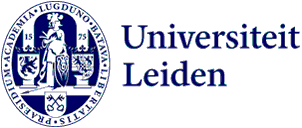
A shared path to well-being: ‘Someone has to be the first to say: let’s do things differently’
How do we offer students a helping hand without losing sight of our own well-being? This was the question that study advisers, lecturers, deans and student support staff tried to answer at the Staff Symposium on Student Well-being.
Three minutes of squats? Easier said than done, the 200 staff members in the main auditorium of the ECC conference centre soon realise. Professor of Neuropsychology Erik Scherder, on the other hand, who is leading the exercise from the stage, is squatting there as though he doesn’t have a care in the world. ‘You’re doing an excellent job’, he assures the audience. ‘A bit lower: look at me. And I’m the oldest here, aren’t I?’
An expert in brain science, Scherder is the keynote speaker at the Staff Symposium on Student Well-being 2024 today. This is the third year that the SEA expertise centre has organised the event – but the first time they have joined forces with Healthy University and the University Sports Centre. With ‘A shared path to well-being’ as its theme, this edition focuses on the well-being of not only students but also staff. ‘Because you can’t lend a helping hand to others if your own hands are full’, says co-host Adrian Herbaut at the opening.
‘You can’t lend a helping hand to others if your own hands are full’
Blood flow to the brain
Scherder waxes lyrical about the effect of exercise on our well-being. His message: the more active you are, the better the blood flow to the brain. ‘If you sit around all day, the brain networks don’t get the extra boost they need.’ He is most certainly not a fan of working from home, it soon becomes clear, because most people are less physically active on those days. ‘How can you still be motivated at the end of the day or make the best decisions?’
Scherder advises taking regular breaks at work for a few minutes of physical activity. ‘In meetings, I always stand up after half an hour. People look at me incredulously but they soon stand up too. I don’t do video calls at a computer anymore, only walking meetings with an earpiece in. Someone should be the first to say: let’s stop doing the same thing over and over again; let’s try something different instead. That takes a bit of courage.’
-
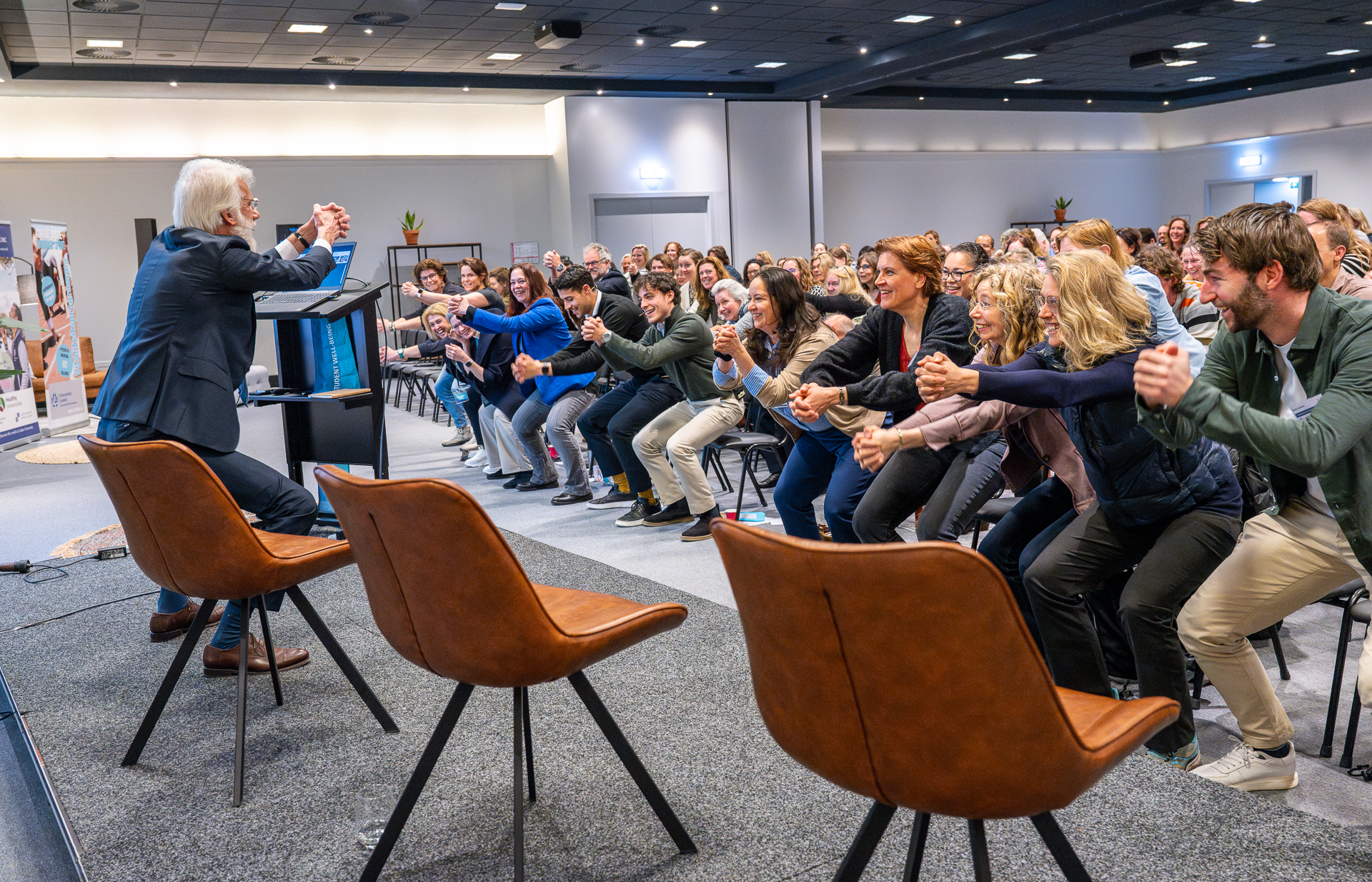
Scherder leads the audience into a squatting session -
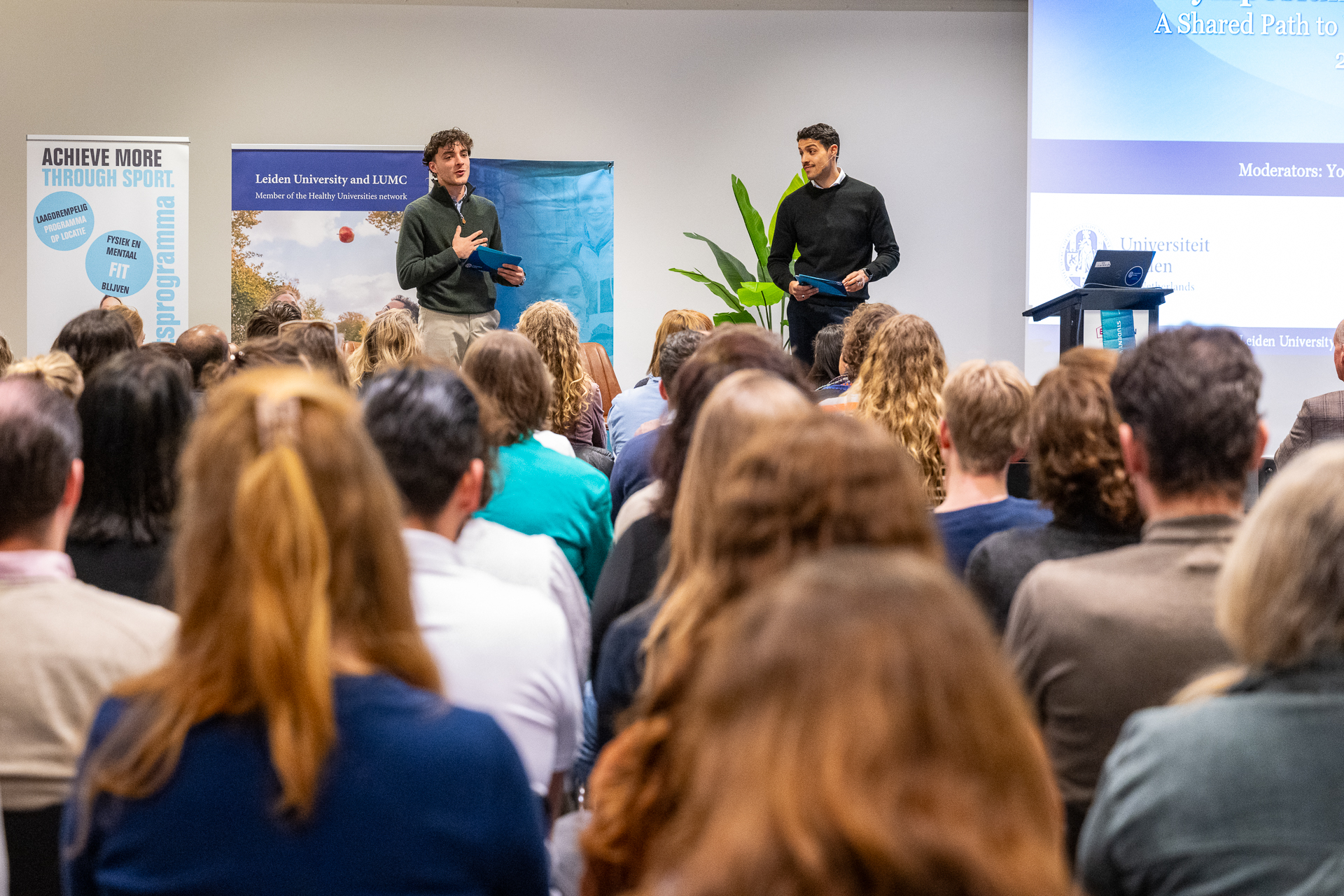
Hosts Adrian Herbaut and Yousef el Baser -
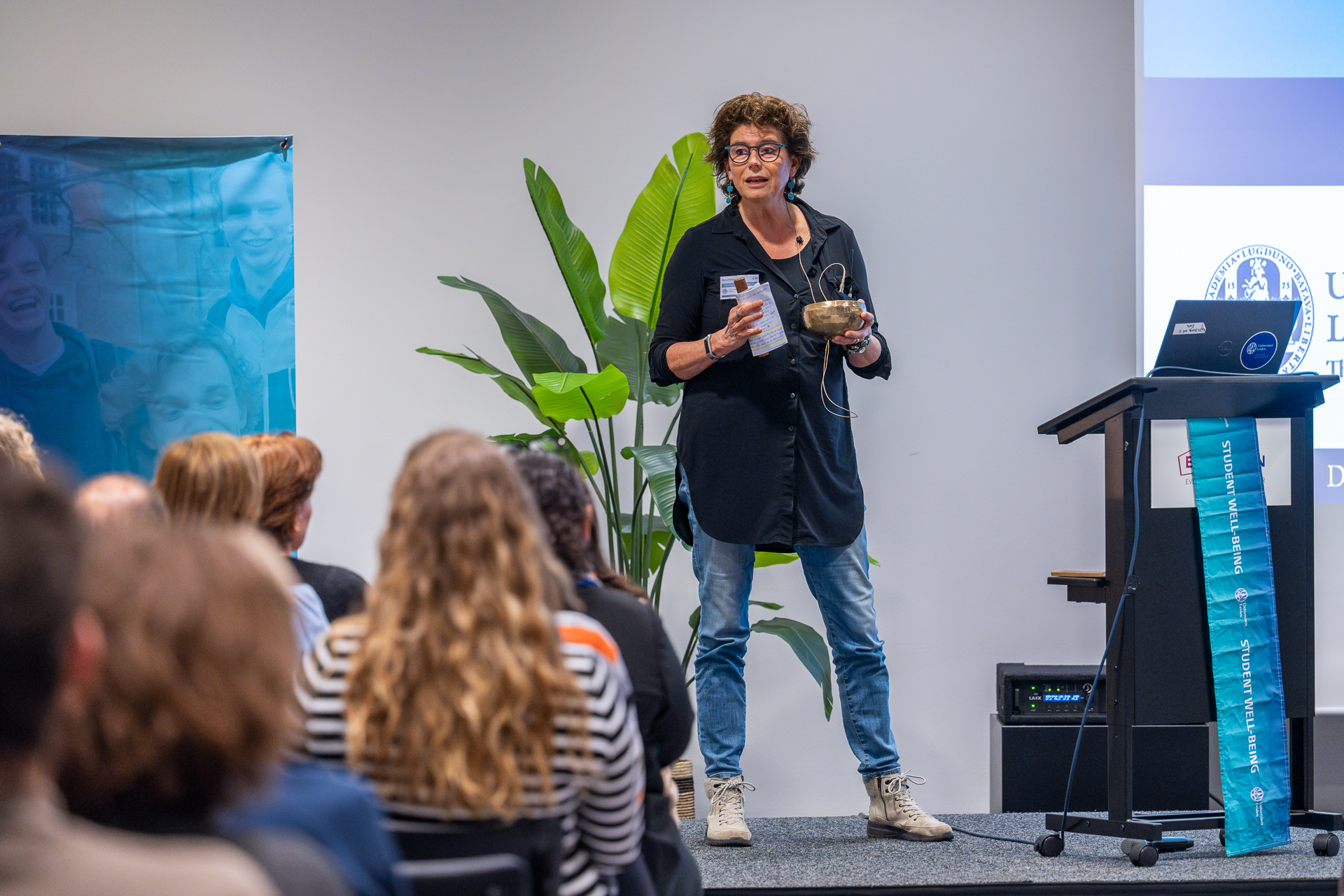
Petra Penning gave a mindfulness training -
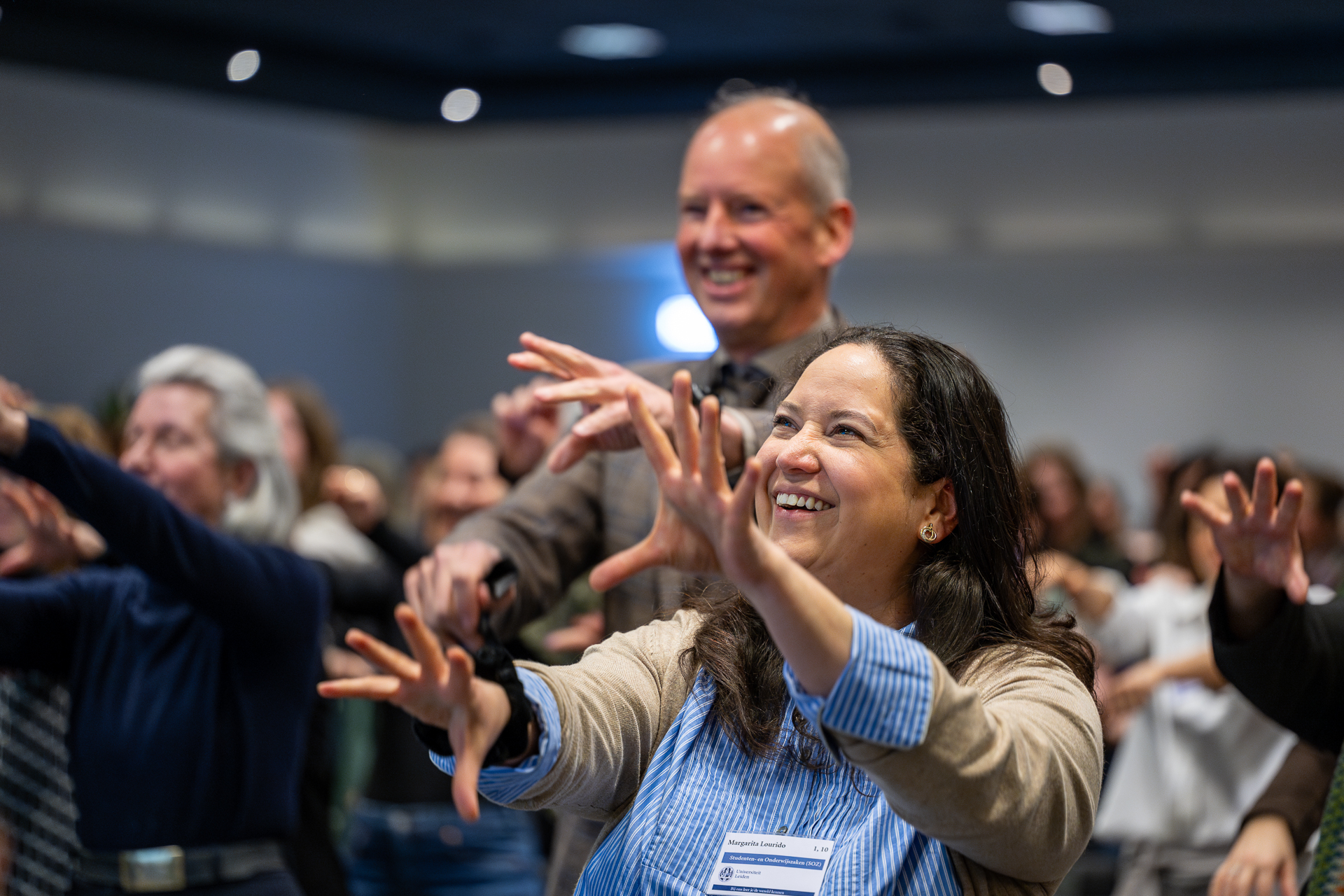
After the keynote everyone joined a USC energizer -
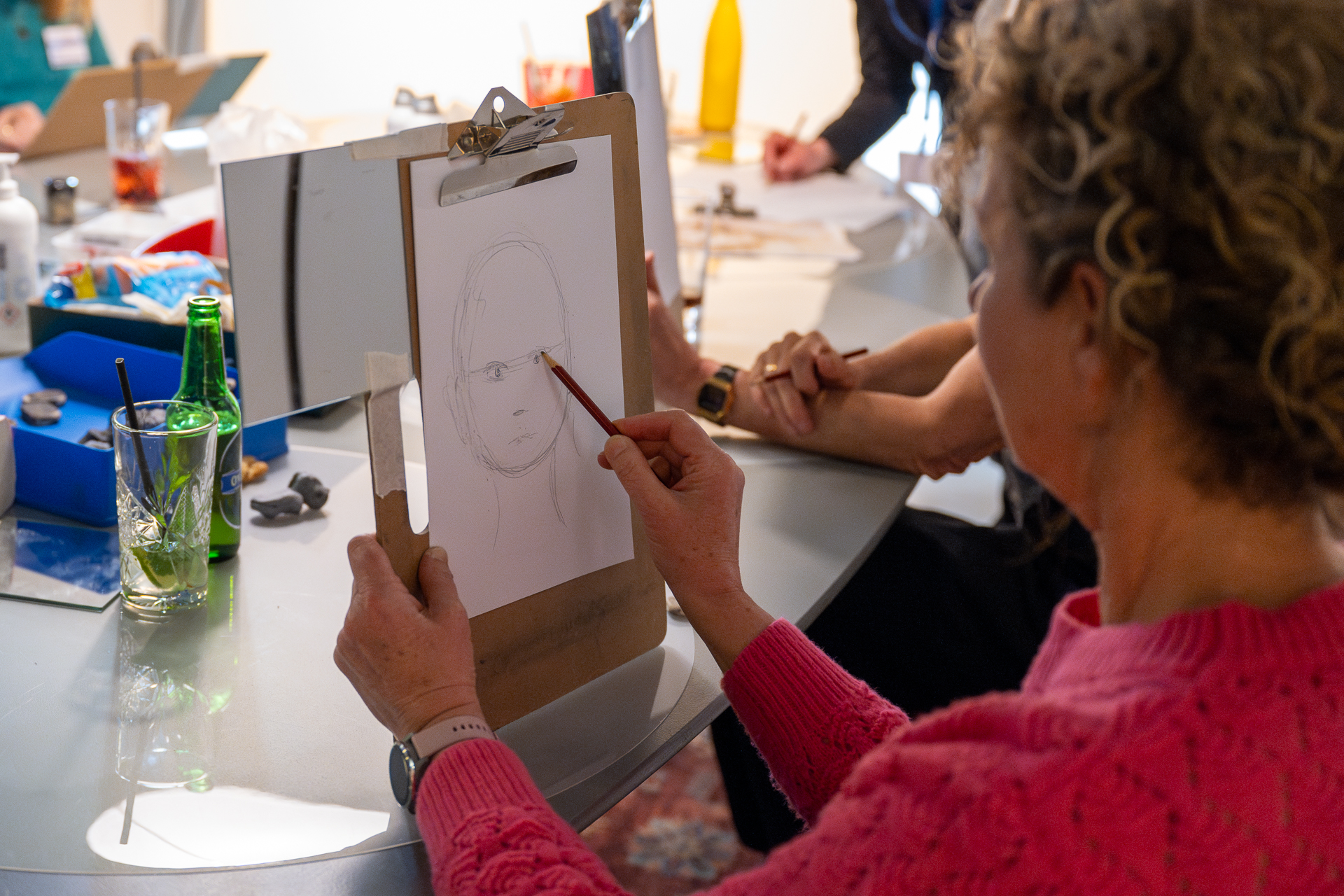
At the well-being market, there was a mini drawing workshop
The importance of doing nothing
It’s no surprise that Scherder interrupts his own story to get the audience out of their seats for a moment. When he teaches, he gets his students to do three minutes of squats every half hour, he says – a feasible exercise in cramped lecture benches. ‘Our students spend the whole day on their backsides. Why don’t we do something about that? Why do we only train the cognitive side and completely forget the physical one?’ He calls on staff who have one-on-ones with students to do these walking from now on.
‘In meetings, I always stand up after half an hour’
Another way to get the best out of our brains, says Scherder, is to “do nothing” more often. This activates the default mode network in our brains, he explains: the network for creativity, problem-solving and flexible thinking. That great idea we suddenly get in the shower, for example. A walk can be a good moment to do nothing, Scherder suggests. ‘But without listening to a podcast because that is too much of a distraction for the brain.’
Scherder prescribes two 20-minute rest periods every working day. ‘And I don’t mean coffee breaks and lunch but extra moments for doing nothing at all. And if you ask me if that is part of work, my answer is: yes!’
What did visitors think of the symposium?
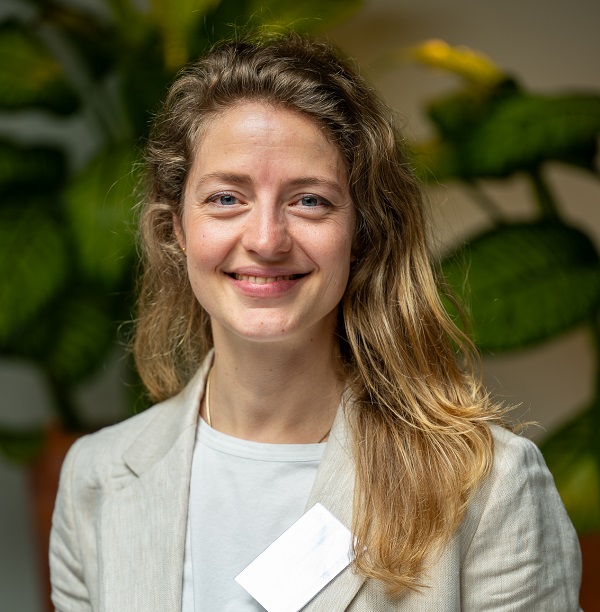
Laura Nawijn, assistant professor and coordinator of studies
‘I see lots of students struggling with their well-being so I think the subject of this symposium is useful to all lecturers. I was really inspired by Erik Scherder’s story about the importance of regular exercise. I’m definitely planning to walk or stand more often during meetings and to get students to stretch, stand or walk about during tutorials. You can do a discussion exercise, for example, where students go and stand on the left or right of the room to show whether they agree or disagree with a statement. And it also struck me that there’s currently a coffee machine on my desk, which isn’t a brilliant idea. It’s better to go for a walk and have a chat with colleagues. Because I heard today that those interaction moments are also important for our well-being.’
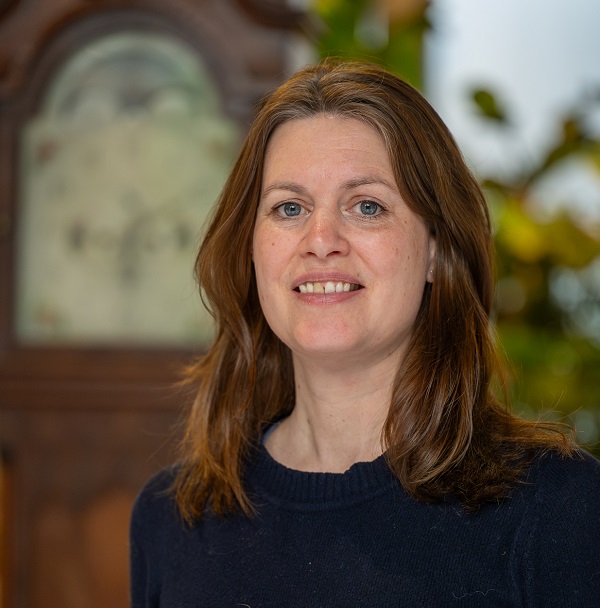
Clair Francis, student counsellors team leader
‘Student well-being is obviously an important topic in our work because as counsellors we speak to a lot of students who are not doing so well. So I’m glad to have gained so many new insights today − about resilience, for example, and why it is that people respond so differently to bad things. It also felt useful to reflect again on what exactly happens when students feel stress and what they can do to manage it best. After today, I also plan to apply these tips to myself a bit more often. Because offering advice is easy, but heeding your own advice can be rather difficult.’

Jens Mekking, board member of the Study Associations Consultation Platform (StOP)
‘As an association, we can see that a lot is happening at the university in terms of student well-being. But this policy does actually have to reach the students, and that is through the staff. A day like today can definitely help. My takeaway from the workshops is how important it can be to talk to students about their well-being. You don’t always have to refer them on, but can just try to make contact. That can be by asking the simple question: How are you? Funnily enough, I realised that certain tutorial lecturers do this very deliberately. Perhaps they’ve already had this kind of training.’
A shared path to well-being
At this third edition of the Staff Symposium on Student Well-being, the well-being of students went hand in hand with that of staff. During the plenary opening, the attendees participated in mindfulness training by student psychologist Petra Penning and an energiser by sports coordinator Kathelijne Mischner from the University Sports Centre (USC). After the keynote, those present took part in various workshops. New this year was the interactive well-being market. This gave staff the chance to talk to student counsellors and psychologists, their colleagues from the USC and Healthy University, and representatives from 113 Suicide Prevention. And there was a mini drawing workshop for those in need of a creative break.
Text: Evelien Flink
Photos: Monique Shaw
